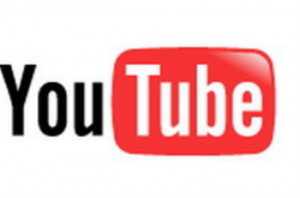YouTube is back on Turkey’s long black list of censored websites.
 But unlike before, the reason has nothing to do with offending Mustafa Kemal Ataturk, who is viewed as the father of modern-day Turkey, but a sneakily shot tape featuring a man and a woman–claimed to be the former leader of the Republican People’s Party (CHP), Deniz Baykal, and a female CHP politician in a bedroom–and involving nudity.
But unlike before, the reason has nothing to do with offending Mustafa Kemal Ataturk, who is viewed as the father of modern-day Turkey, but a sneakily shot tape featuring a man and a woman–claimed to be the former leader of the Republican People’s Party (CHP), Deniz Baykal, and a female CHP politician in a bedroom–and involving nudity.
Baykal resigned soon after the tape saw the light of day, back in May 2010, but remarked, “This is not a sex tape, this is a conspiracy.”
The “conspiracy,” however, was enough for Turkish authorities to reinstate the YouTube ban on Wed., Nov. 3. Following legal action by Baykal, a court ordered the High Council for Telecommunications (TIB), in charge of Turkey’s internet regulations, to either have YouTube remove the video or ban the site entirely.
An ‘obsolete and ridiculous move’
On Nov. 3, just after the court’s ruling, Reporters Without Borders (RSF) urged Turkish authorities “To ensure that access to the video-sharing website YouTube remains unblocked.”
“Making it inaccessible again would be seen as an obsolete and ridiculous move, especially as many Turkish internet users are able to circumvent the censorship and access the site” added RSF.
Some believe the sex tape was merely a shoddy excuse to ban YouTube.
The ban on was lifted only a few days earlier, on Oct. 30, after four videos criticizing Ataturk were removed “by a small Turkish company based in Germany, International Licensing Services, using YouTube’s automated copyright protection system,” noted RSF.
The company claimed the tapes, which were deemed as insulting the memory of Ataturk, violated copyright laws.
Google, Inc., the owner of YouTube, soon refuted this claim and said no copyright laws were broken. The four clips were allowed back on YouTube on Nov. 1, but they remained inaccessible in Turkey.
In 2008, authorities in Turkey banned access to YouTube and in June 2010, they blocked access to Google pages that shared the same IP addresses as YouTube. Google offered to block the “offensive” YouTube clips in Turkey, but this was rejected by Turkish authorities who demanded their complete removal from the site.
Turkey’s President, Abdullah Gul, has reportedly been quite critical of the ban—on his Twitter page.
“The world has already become very transparent. No one can isolate their country with custom walls or through other means. Our self-confidence is immense. Although some problems may arise because of that transparency, Turkey will overcome all obstacles with its self-confidence and resolute stance. There is no need for fear. Restrictions do not bring about the desired outcome, anyway,” he said, according to Today’s Zaman.
In March 2010, RSF listed Turkey as a “country under surveillance” in the latest “Enemies of the Internet” report. Retaliations against broadcasters, journalists, and writers—from authorities, individuals, or groups—are also frequent in Turkey.
In its Nov. 3 report, RSF noted that “The YouTube controversy should not eclipse the extent of online blocking and censorship in Turkey, or the arrests and prosecutions of bloggers and netizens. Thousands of websites are blocked, in most cases for criticizing Ataturk or the army, for perceived attacks on the nation’s ‘dignity’ or for referring to Turkey’s Kurdish and Armenian minorities, taboo subjects in Turkey.”
In a 2010 report, Reporters Without Borders said there is a special hotline for reporting forbidden online material, and that between October 2008 and May 2009, the number of calls rose from 25,000 to 80,000. Currently, more than 5,000 websites are censored in Turkey.